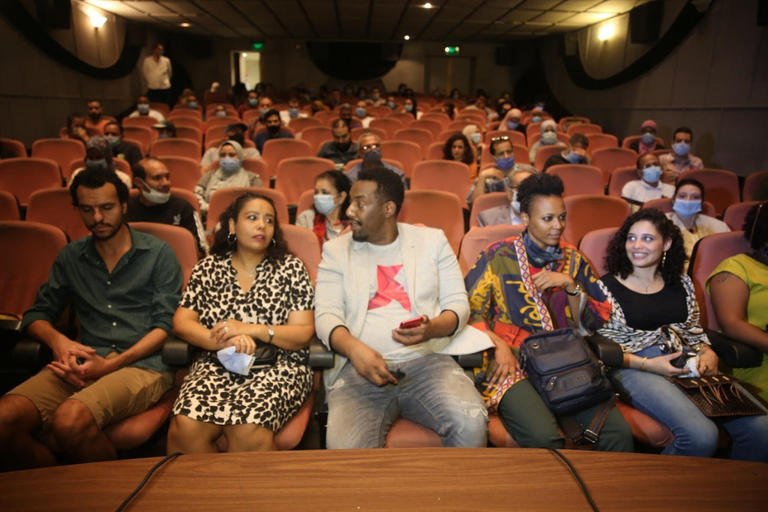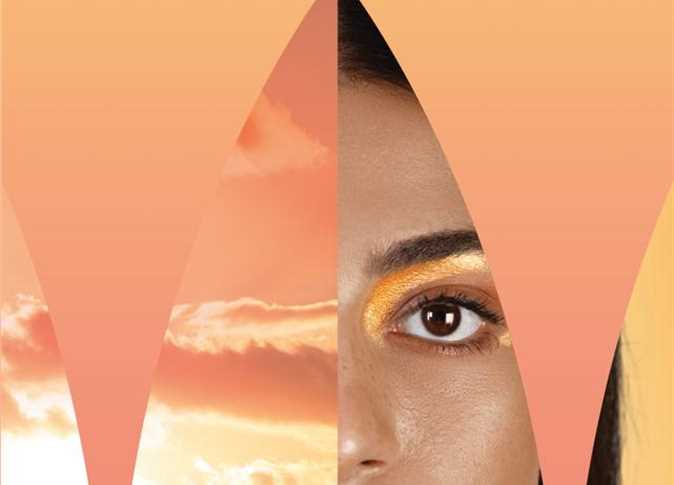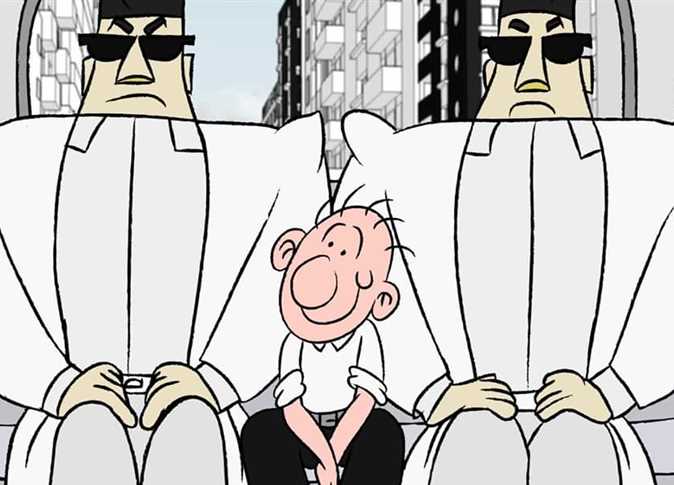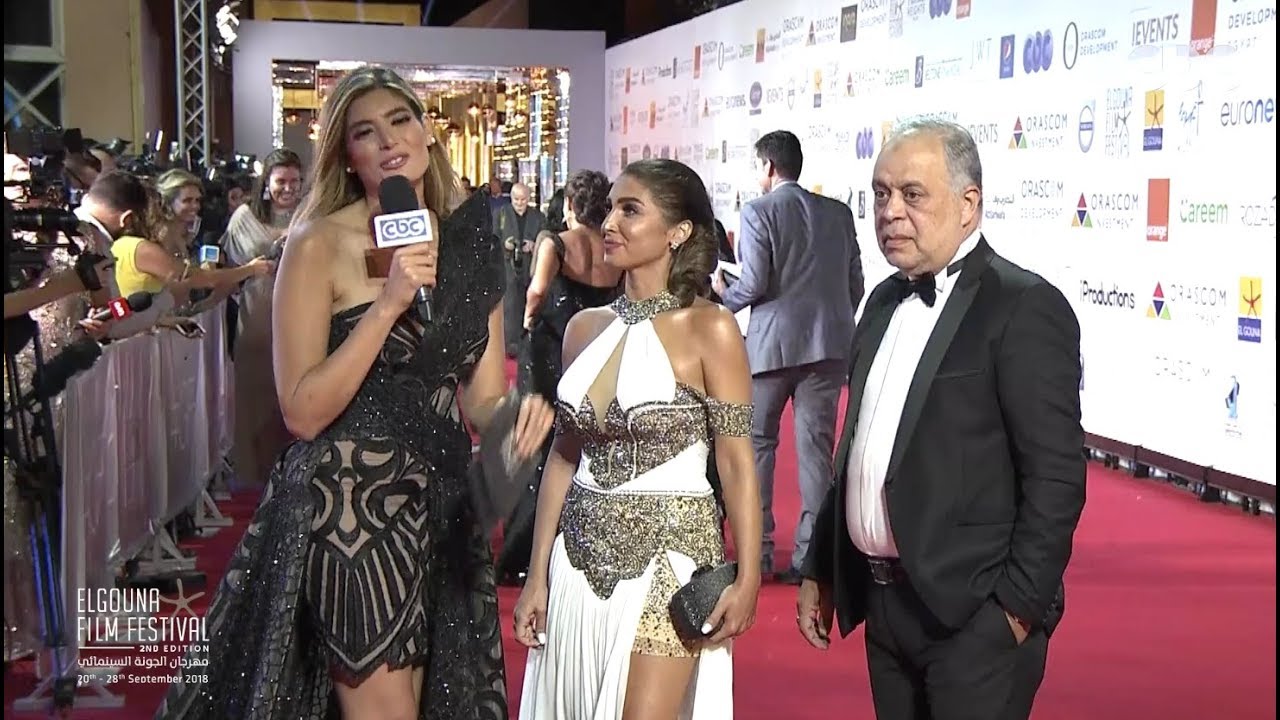After four years of absence, the Panorama of European Film is returning to Cairo, showcasing twelve films from six European countries at City Stars cinema between 16-22 December. The Panorama–an attempt to expose Egyptian audiences to the wide variety of film found in European cinema, as opposed to the usual Hollywood blockbusters dominating today’s theaters–is the brainchild of Egyptian producer and director Marianne Khoury.
Al-Masry Al-Youm spoke to Marianne and Gabriel Khoury , who together represent Misr International Films, the production company founded by legendary Egyptian auteur Youssef Chahine.
Al-Masry Al-Youm: In comparison to other film-related events in Egypt, this year’s edition of the Panorama features an unusually strong selection of films. How did you succeed where others keep failing?
Gabriel Khoury: Well, we have good, healthy relationships with various European producers and distributors, which we’ve built over the years and of course that makes it easier to ask for things. They might say ‘yes’ to us for less than they would to other companies. It’s not always easy though.
Al-Masry: This is the second edition of the Panorama, the first being back in 2004. Why the long absence?
Marianne Khoury: It’s hard, organizing something like this. There are a lot of different things you have to keep in mind, and a lot of different things you have to rely on. And sometimes, the timing just isn’t right. Today, conditions are better in terms of screening as well. There are more theaters, more screens.
Al-Masry: Although this Panorama highlights European films, the selection comes from western European countries only. Were there plans for any films from Eastern Europe?
Marianne: There were plans, they just didn’t work out. We wanted films from there. We tried hard, for example, to get one film in particular–"Picnic" from Romania. That film is a master class in how to capture the audience’s attention. The film has only three characters and is shot digitally, but it grabs you from the first moment and doesn’t let go. However, I can say that future editions of the Panorama will definitely see more participation by eastern European countries.
Al-Masry: Will the Panorama see the addition of more film-related events in the coming years, like workshops or symposiums?
Marianne: Between the first and second Panoramas, we did many things that were related to the Panorama, but in a different form. We created a program called Cinemania where we used to show a European film every two weeks at City Stars cinema. This lasted for about eight months. It was very difficult to sustain, because it existed within a commercial setup and we were screening films that were not very commercial. Following that, we held a series of themed weeks, like Swiss Week and Spanish Week. We even had a workshop with [Swiss documentary filmmaker] Richard Dindo, giving a series of classes over three days, which was very generous of him. As for workshops as part of the actual Panorama, I’d say it’s very possible for future editions.
Gabriel: Apart from the Panorama, I proposed that the Cairo International Film Festival set up an initiative called the Cairo Film Connection. Basically, we choose ten different projects from Arab countries, directors and producers who are unable to make the films they want to make. We invite them to Egypt during the [Cairo International Film] Festival and set up meetings for them with people who might help make their films–regional and foreign channels and producers. If this idea goes well, and depending on things like budget and such, we might try to expand it into workshops. If we can take that to something else from there, we will.
Al-Masry:Your production company, Misr International Films, was founded by and based upon the work of legendary director Youssef Chahine. What are your plans following his passing away?
Marianne: Well, this Panorama will be an annual cultural event.
Gabriel: As far as the company is concerned, we will try to carry on in the same spirit. Of course, we can’t reproduce the work of Mr. Chahine. What he did was unique and inimitable, and he himself was a rare case. However, we continue to work with people whose work we support, like director Atef Hatata on his new film. We’re also working with a Lebanese director on a project to be filmed between Lebanon and Canada. We have plans to start producing digital films and we will start thinking about adapting the market for digital films. We have already installed nine digital projectors in theaters across Egypt and by mid 2010 that number should grow to 16. Hopefully that will make it so that films shot digitally won’t have to be converted to 35mm, which is an expensive process. We have to change and adapt and rethink everything, from shooting to screening to marketing, so that we can make the films we want to make in an industry that supports those films.
Al-Masry: The Panorama provides audiences with a chance to watch films they might otherwise not be exposed to, to enrich them culturally. Considering the state of the regional film industry and the current issues that the world is dealing with, what role or responsibility, if any, should Egyptian filmmakers have?
Gabriel: To make good movies. That’s first and foremost, and we’re struggling with that. We need to understand how to make movies that can exist on a commercial level, so that the filmmakers can keep making films, but also on a certain artistic level, so that they can be appreciated and through that gain a wider audience. It’s hard to balance the two, and we’re still trying to figure out how to do it. That’s our main responsibility, and we need to figure that out before we can compete properly on an international stage.
Al-Masry: The film industry is notoriously difficult to break into, and this is especially true in Egypt. What would you say is the biggest obstacle facing young filmmakers today?
Gabriel: The nature of the market. How expensive everything is now. A lot of people went into this industry without knowing anything about it or properly understanding the basics. Things began working a way they shouldn’t have. Budgets rose, everything got more expensive, and for no good reason. All this makes it harder for younger filmmakers to break into the industry. We’re trying to help them out, by doing things like supporting digital filmmaking. Our next two, maybe three films will be shot digitally. And we were the first people to seriously attempt this, back with Yousri Nasrallah’s "The City" (1999), but now we’re evolving, we’re growing.
Al-Masry: In order to screen or even officially shoot a film, you need to be a member of the Filmmakers’ Union, which requires, among other things, a huge membership fee. Doesn’t this present a problem for young directors struggling to have their films viewed?
Gabriel: Of course it does. You have problems everywhere, from all unions. Every union member should make an effort to make things easier for young filmmakers to film and screen their projects. That’s how things get better. These young filmmakers represent the changes we need, the new way of thinking that is necessary for the industry’s survival and growth. The way things are now makes it difficult, to say the least.
Al-Masry: Earlier this year, independent director Ibrahim El Batout went through a well-publicized struggle to get his film "Ain Shams" approved for screening. What did you make of that?
Marianne: That was unfortunate. Things should be simpler than that. He fought to make the film and in the end, it comes down to formalities. These obstacles are just a series of formalities. I think for directors to be able to work more often, the system needs to be smoother.
Al-Masry: Looking to the other side of things, what would you say is the problem with the filmmakers who are already established and working within the system?
Marianne: Personally, I think they don’t spend enough time developing their films, content-wise. They don’t take time to think things through; they’re constantly in a hurry. I have met a lot of young directors who are extremely talented, but there’s no transitional period. They make a good first film and a year later, they make a feature film, and then three months later they’re making another one, then another one. I can’t understand how they make films so fast.
Al-Masry: We mentioned the Cairo International Film Festival earlier, and Marianne, you were a jury member for their 33rd edition, which recently ended. What was your experience like?
Marianne: Well, it was my first time on the jury, so it was different. I think they can do a lot more. They’re excellent at things like the PR side, the ‘touristic’ things, the opening and closing ceremony, but I think there should be other activities in between that have to do with filmmakers and triggering people’s interests in the films screened.
Al-Masry: Do you feel like it might be more difficult for women to find success in the film industry, given the nature of both the industry and the country?
Marianne: (Laughing) I don’t think it has to do with gender, I don’t believe that. It’s more about character. That’s what really matters.
Al-Masry: Finally, Youssef Chahine was a visionary, by any standard, and he changed the face of Egyptian cinema. Do you see his influence in any of today’s young filmmakers?
Marianne: Well, every person is unique, especially if you’re a director. Many people worked with Chahine, but he had his own style, and it really was one of a kind. I’m sure anyone who ever worked with him came away with something. He was very resistant, very strong, and that’s why he was able to exist in this industry for 60 years. Sixty years! That needs an amazing amount of strength. But he was also a very tender man. He was special.
For more information on the 2nd Panorama of the European Film, and details on films, screenings and events,
please visit www.misreurofilms.net




